Brainworx Rockrack_V3 Review
This is in contrast to the popular and expected methodology of granting guitarists gads of tweaking options through the inclusion of many dozens of amp models, cabinet designs and microphone options. Rockrack Pro sported three über-carefully modeled amps – with a total of five distinct channels – and four cabinet models.
The amp channels were (and still are) discreet modeling of the following: ENGL 530 (Clean and Lead); Marshall JCM800 (Clean and Crunch); and Mesa Boogie Rect-O-verb (Clean and Lead). Gratifying cabinet impulse-responses of a “Marshall 1960 TV”, a “Mesa Boogie 4x12”, an “Orange 2x12” and a “Diezel 4x12” were loaded in – with varied mic configurations. BX Rockrock Pro was capable of delivering big, shimmering cleans, authoritative crunch, and screaming higher-gain leads. It tended towards minimalism and simplicity, yet offered plenty to take its rightful place on any home recordist’s “GO TO” shelf. Fast forwarding to 2017, Brainworx unleashed the bigger, better, bad-assier BX Rockrack_V3. This grown-up, weightier, warrior of rock n’ roll marches onto your sound stage with an arsenal of EIGHT distinct amp channels and a battalion’s worth of cabinet impulses. Some pertinent good news that I’d like to highlight immediately, is the fact that BX Rockrack V3 is very light on CPU – a very welcome advantage in its favor! A second piece of welcome intel, is that V3 hosts 40+ cabinet impulses/recording chains. Stick n’ stay ! Hang out with yours truly for a few minutes, and let’s find out if the $199 (USD)** price tag is merited. **Excluding Plugin-Alliances special sales and bundle offerings. ** PS. There's a link to my full-featured video presentation of bx Rockrack V3 at the end of this article. You'll see it at the bottom of the page. ☻
If you’re a guitarist who happens to also be a home recordist, you’re probably well aware of the deluge of amp sims available. IK Multimedia is very likely the most prolific developer of ITB (In-The-Box) virtual amplifiers due to the enormous success of their “Amplitube” series – dating all the way back to 2002.
Other developers, such as Overloud, Positive Grid, and of course, Native Instrument with their perennial “Guitar Rig”, have garnered large followings of loyal customers over the years. For the longest time, no *real guitarist was ever truly satisfied with most amp sims. This was owing to the fact that the “feel” and “response” of software emulations could only reproduce momentary snapshots – not the organic, breathing qualities of tubes and real speakers dynamically interacting with each other. In all fairness, as time has gone on, amp sims have continued to improve to the point where the better ones are practically indistinguishable from the real deal – well, from a listener’s perspective, at least. For example, IK Multimedia’s fourth iteration of their “Amplitube” line, Positive Grid’s “BIAS”, Overloud’s “TH3” and Scuffham’s “S-GEAR” are all capable of reproducing very convincing tube amp & cabinet tones combined with realistic feel. How does BX Rockrack V3 full-stack or half-stack up against the competition? Frankly, I think it stacks up well. In addition to the already solid emulations established in the original “Rockrack Pro”, we can now experience Brainworx’s take on screaming metal weaponry. Ominously titled “BX_Metal 666”, a nondescript, high-gain amp designed for modern metal guitarists is also now on board. This one is an original creation of Brainworx founder, Dirk Ulrich and Senior DSP Engineer, Igor Nembrini. However, I would have preferred a different naming convention. How about “BX_Metal 777”? *Grin.
Installation:
Upon payment, a customer can immediately download the plug-in installer from within their user account area on the Plugin-Alliance web site. BX Rockrack V3’s installer weighs in at 55MB. Remember, please, that AAX, VST3 and standard VST formats are all included within each installer. Each plug-in may be fully demoed for a 14-day trial period. As with all Plugin-Alliance plugins, there are available for both MAC and PC.
Visual Design:
The overall visual presentation of “Rockrack V3” has been refreshed and updated, yet it remains immediately familiar to users of its predecessor. The GUI is attractive and inviting due to 3D-ish, photo-realistic graphics. The interface exudes naturalism and visually conveys ease-of-use and uncomplicated tweakability. I’m particularly pleased that Brainworx has graphically distinguished the individual amp models from one another. In the original “Rockrack Pro” a single interface was common to all amps/channels. It’s much better to see differences between the varied models – in conjunction with hearing the changes. Appropriate spacing between the varied GUI appointments and sensible, clearly labeled text elements make for an uncomplicated, enjoyable user experience. From end-to-end, the interface is neat, clean and intuitive.
A small niggle that I have concerning the GUI and functionality of “BX Rockrack V3”, is that the knobs respond to Circular-relative mouse movements only, within “Samplitude Pro X3”. I prefer Linear up/down mouse movements as they tend to be much less fiddly. Howbeit, as I continued to bench-test, Linear mousing *is the norm within Ableton Live 9, PreSonus StudioOne Pro 3.5, Reaper 5 and Mixcraft. I haven’t experienced this kind of tactile discrepancy with other makes of plug-ins I’ve tested within the above-mentioned DAWs – only Plugin-Alliance’s.
Ctrl + click resets a knob to its centered, default position; granular adjustments can be made while keeping your keyboard’s shift key depressed. Left-clicking on the display value of any control facilitates direct input, whereby you can type in exact values if you prefer to do so over mouse movements.
Performance & Functionality:
For those times when typical Bass, Mid, Treble and Presence dials don’t provide enough tone control, you can further tweak an EQ curve with BX Rockrack V3’s on-board 5-band graphic equalizer. The tone shaping here is rather extensive, greatly reducing a need to rely on supplemental outboard EQ processing. If the 5-band is not necessary, you can simply switch it off. In regard to the standard tone controls, I like how reliably they function. That is to say, tweaking the knobs makes tonal adjustments very much as one would expect a physical tube amp’s tone controls would function. I haven’t noticed any drastic jumps in tone while twisting the dials – they increment/decrement smoothly in a very analogue-like manner. Opening the FX Rack displays a tidy little bevy of bread n’ butter components. Starting things off, we’re granted a simple, but effective Noise gate. An appreciable feature of the Noise gate is its ‘Range’ knob. With this, we can adjust the level of signal reduction, as opposed to having only simple wide open or fully closed gate settings – resulting in less obvious, smoother gating.
Just below the noise gate you’ll find a combo box/list where you can choose any one of the impressive sounding, built-in cabinet impulses (there are 40+ of them). Each cabinet impulse is a careful impulse capture of complete recording chains at Brainworx (and other) world-class recording studios. These chains encompass both boutique and vintage cabinets recorded through high-end mics, mic preamps, Neve consoles, and so forth.
Positioned adjacently, there’s a capable, delicious-sounding Delay/Echo module. You’re equipped here with tempo-tapping, host-syncing or freely-ranged delay times. Feel free to introduce a bit of vintage-sounding, tape-style echo thanks to the included Lo-Fi knob. To further enhance its usefulness, delay times can be halved or doubled via a duo of corresponding push-buttons.
A pair of high & low pass filters - uniquely labeled ‘Tight’ and ‘Smooth’ respectively - is assignable to the signal’s onset, or the pre-amp’s output stage. This filtering is effected before the signal hits the power-amp. Alternatively, you can completely disengage the filters (individually).
Be sure you don’t overlook the ‘Shred’ knob. According to Brainworx’s user manual, this tasty little function allows a user to smooth out harsh frequencies. I agree. In use, this feature sounds to me as though the processing is accomplished by borrowing algorithmic portions from Brainworx’s own “BX Shredspread” plug-in. Shred is effective and not to be underestimated.
Lastly, a ‘Master Out’ volume control is provided in conjunction with a convenient clipping LED. While I’ve been finagling my way through all sorts of clean, crunch and higher gain settings, the ‘Master Out’ control has been a real audio savior. For instance, while driving the ‘Gain’ up on the CLEAN 800 channel, it’s been tricky to lower the ‘Volume’ to an appropriate output level. As such, I just set it to 1.5 and adjust the ‘Master Out’ level accordingly. The good news is that you don’t have to rely solely on your ears. Keep an eye on the ‘CLIP’ indicator and you’ll be certain to achieve proper output levels.
Sound Quality:
A frequent compliment that Rockrack V3 users express is how they feel that Brainworx amp sims get closer to an authentic mic'd tone more quickly than some other amp sims. BX Rockrack V3 seems have more weight without suffering from a shrill, digital temperament. Now when we say weight, it isn’t to infer that “Rockrack V3” is impaired by a muddy or sloppy bottom end. On the contrary, the various 4x12 cabinet impulses in particular, produce rich, muscular tones with plenteous low end authority. The mids are even and well-balanced. V3’s Highs can cut the Mohawk off a punk rocker at 50 paces, but never in that horrible, ice-picked, fizzy way. Not being a high-gain shredder myself, my guitar playing leans a lot more towards blues, classic rock and country. Every once in a while, I put some nifty jazz-like progressions together and trick the innocent into believing that I can play somewhat beatnik-ish. *Grin. That said, I agree with other V3 experimenters regarding the believability and authenticity of Rockrack’s tube-like responsiveness and tones.
The Suspects:
Pulling up the ENGL 530 CLEAN channel is sure fire way to indulge thyself in glorious, JC-120-like crystalline cleans. Toss “BX Bluechorus2” in front of this channel, dial up some built-in 1/8th note delay, and it’s a sumptuous aural experience! Although voiced differently, Brainworx’s own CLEAN JAZZ channel is another powerhouse of pristine sparkle, spank and girth. Just because it’s clean, doesn’t mean it has to sound anemic or brittle, you know. Nope, there’s lots of shiny tube-like beef here, y’all. Engaging the ‘Bright’ switch helps you approach a tone reminiscent of an old, silver-faced Twin. By the way, dropping a Tube Screamer in front of this amp model deals out tasty classic rock and blues tones.
CRUNCH JAZZ is the more characturful alternative to Brainworx’s CLEAN JAZZ channel. It *is possible to produce healthy, overdriven sounds with this one, but I think it’s brilliantly suited to generating creamy, silky smooth, saturated tones. It’s warm without being muddy, and makes it oh-so-easy to dial in classy jazz, blues or county-ish rhythm guitar tracks - with just the right amount of harmonic pizzazz.
On the more polite side, CLEAN 800 authentically reproduces that glassy-clean sparkle associated with early Marshall amps. Notwithstanding, not only are classic Marshall-esque cleans at our avail on the CLEAN 800 channel, but driving up the ‘Gain’ knobs ushers us into edge-of-breakup grit or even into bell-bottom-flapping crunchiness – just not to the degree of its rowdier, CRUNCH channel sibling. Personally, I really like this channel for blues and blues rock tracks, when driving the gain knob up to “7”.
Engaging ENGL 530 LEAD delivers the tight, searing lead tones that were responsible for putting ENGL amps on the map. Featuring a tight, but woody low end, face smacking (ever-so-slightly scooped) mids, and trademark blazing highs; this particular channel brings excitement and energy. Notes remain articulate, even while highly distorted. Overdriven chords ring with reams of sustain, yet each note remains distinct. Activating the ‘Contour’ circuitry actually bumps the mids a nice bit, resulting in a thick, wreaking ball force of rock power.
MODERN ROCK churns out convincing American Rock Whollop! To be honest, you *can’t even clean the amp up enough to get a “breakup” tone out of it; By its very nature, this one is definitely best suited to medium and higher gain tones. Modern Rock emulates that distinct Mesa Boogie “Rectifier” sound in spades. I paired this amp with the various built-in American 4x12 IRs. I felt that “02 American 4x12 COND563B” produced the best overall tone - Good definition, detail and articulation without losing solid mids and low end girth.
**Well, I did notch out one or two dBs with the 240hz EQ slider. METAL BX 666 is exactly what its name implies – Metal, Metal, Metal. This channel is the heaviest one in the package, by far! Even when the Gain knob is set fully counter-clockwise, to zero, this amp channel remains very distorted. I liked this one being pumped through any of the ENGL cab impulses – I wasn’t impressed while it was combined with the American 4x12 IRs. It produces full, well-balanced tone. Individual notes and power-chords just might sustain for days, if you so desire . . . *Grin. However, I found the ENGL 530 LEAD and MODERN ROCK channels offered more clarity and note articulation whilst playing chords.
CPU & Memory Consumption:
CPU consumption is very reasonable. I estimate that any moderately-powered DAW PC, from 2012 and onward, is easily capable of running a few instances of this amp sim simultaneously in a project. I loaded up (5) instances of “BX Rockrack V3” into an empty Studio One 3.5 project on my Core i7 7700HQ. The PreSonus performance monitor remained under 20 percent. I certainly can’t do the same with “Amplitube 4” or “BIAS” . . . Jus’ sayin’.
Concluding Remarks:
Overall, BX Rockrack V3 is the best-sounding and most capable iteration of the product to date. The included bread-and-butter “rack” effects are very usable and musical. Unfortunately, "bx Rockrack" doesn't host a spring reverb module. In this reviewer's opinion, the lack of good on-board spring reverb emulation is a glaring omission. I put forward that the inclusion of good quality ‘verb would seriously kick the functionality of this amp sim up by a few degrees. As a general statement, I’m not confident that Rockrack V3 is the best choice for those needing an amp sim adept at covering multiple musical genres – it is rock and metal oriented. In all fairness, the CLEAN channels are very nice – not Fender-ish - but very nice just the same. Obviously, the high gain and distorted tones on tap are some of the best in-the-box. The curve dips noticeably where Breakup and/or Overdriven sounds are concerned. With the exception of the CRUNCH 800 and CRUNCH JAZZ channels, there isn’t much else available here if you’re looking for vintage-esque tube sonance. Alas, Brainworx have never promoted Rockrack as a vintage-flavored offering – they produced “BX Bassdude” to address that task. Rockrack would be a little more diverse and customizable if a user could load in 3rd party cabinet impulses (Rosen Digital or RedWirez, for example). At present, this convenient feature is not implemented. Having said that, Brainworx’s “Advanced Impulse Technology” is outstanding. I’m stoked that V3’s CPU demands are nice n’ lite. This plug-in is fast and responsive – it loads up in a jiffy too. Overall, Rockrack V3’s performance is excellent and it actually pulls ahead of the pack by a good lead.
Stay in the Loop - Subscribe Today!
Brother Charles is a freelance writer, Gospel music artist and minister. Charles had been a professional touring musician during the nineties; working primarily as a lead guitarist in the Canadian country music industry. Brother Charles is also involved with music production and quality home recording.
1 Comment
Paul A.
7/1/2017 01:38:02 pm
Good playin, mate. I liked the tones. The Marshall's sounded really good and so did Mesa. Thanx for the review. Keep them coming. I gotta get this if it goes on special.
Reply
Your comment will be posted after it is approved.
Leave a Reply. |
NO SPAM! IK Multimedia Group Buy
FX Pick & Mix Group Buy - up to 16 for the price of 1
Will You Help?Web hosting is getting more and more expensive all the time, and Reviewer's Revival is NOT funded nor supported by any commercial enterprise or business. A donation of any amount is greatly appreciated. Even $2 or $3 for a coffee - every little bit helps. Thanks very much.
Legal BlurbAll of the articles published on Reviewer's Revival are undertaken to be purely objective, impartial reviews. Reviewer's Revival is not owned, funded-by, nor hired by any company or individual. Reviewer's Revival is the sole property of, and solely under the discretion and direction of Brother Charles. |

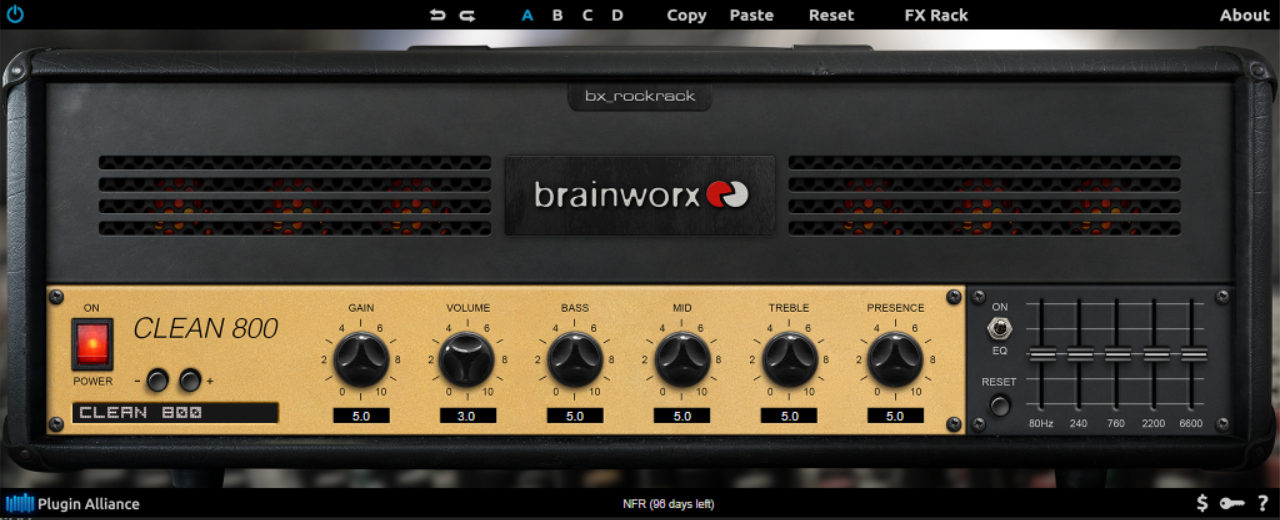
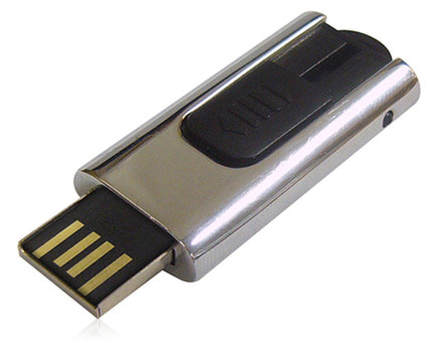
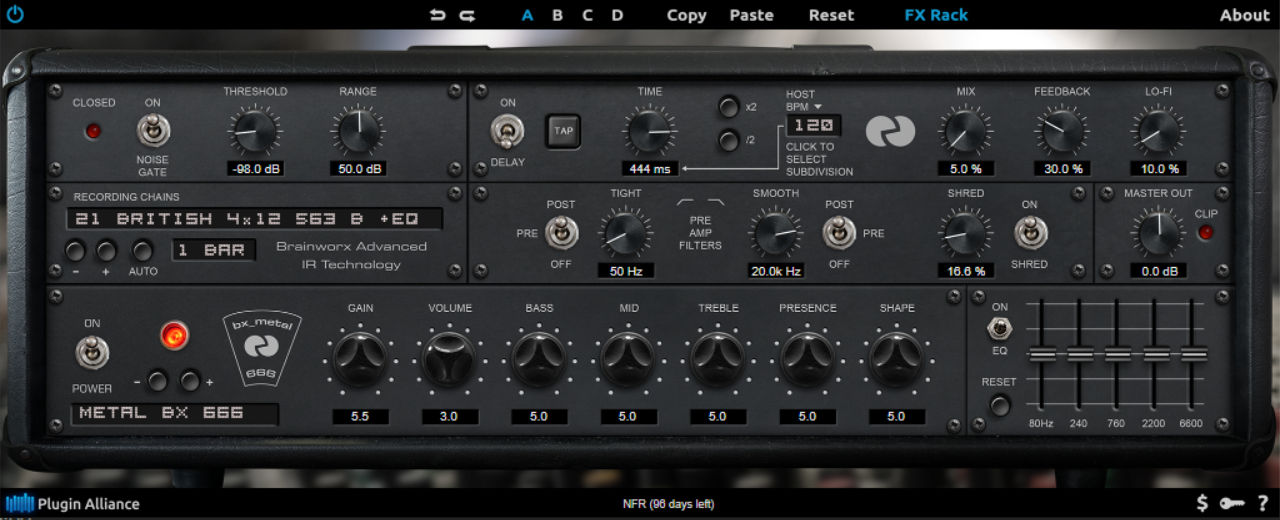






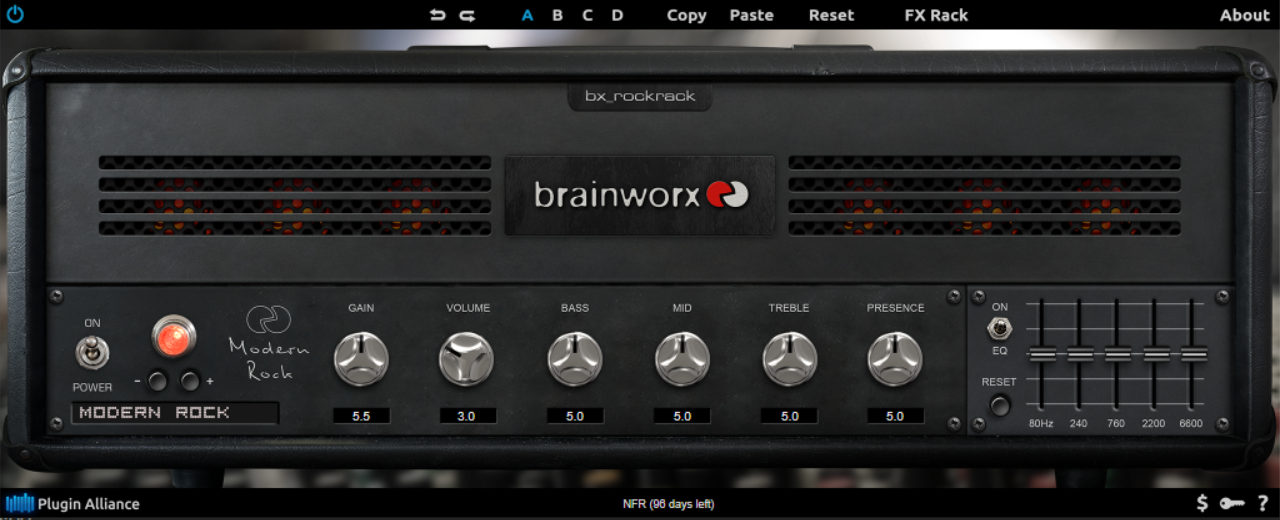
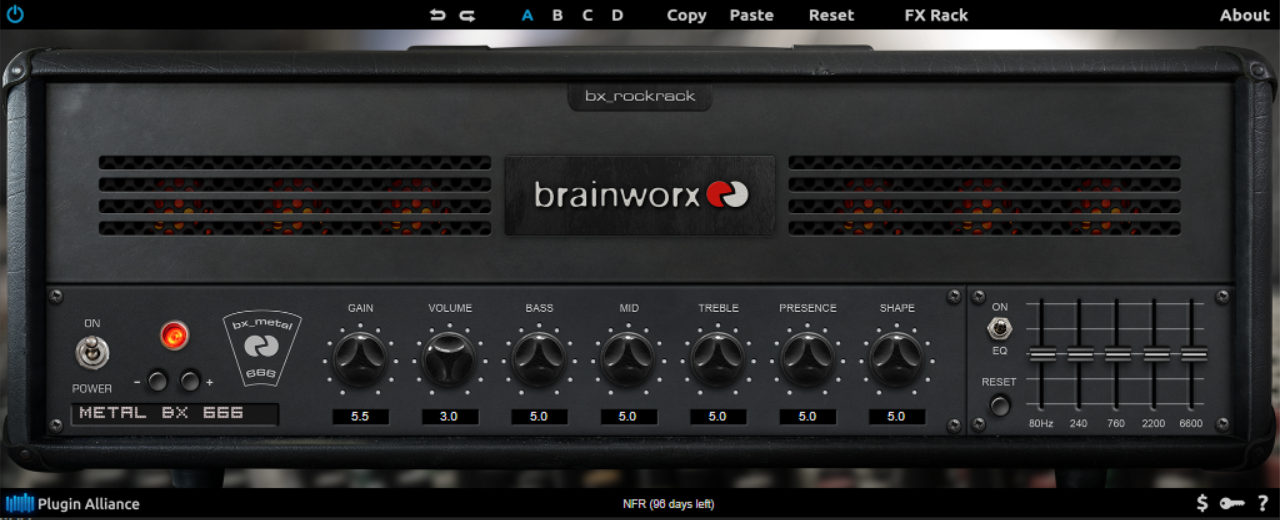
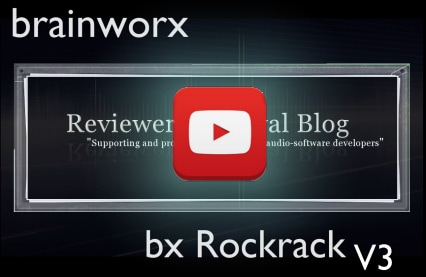




 15% OFF Summer Sale!
15% OFF Summer Sale!
 RSS Feed
RSS Feed

